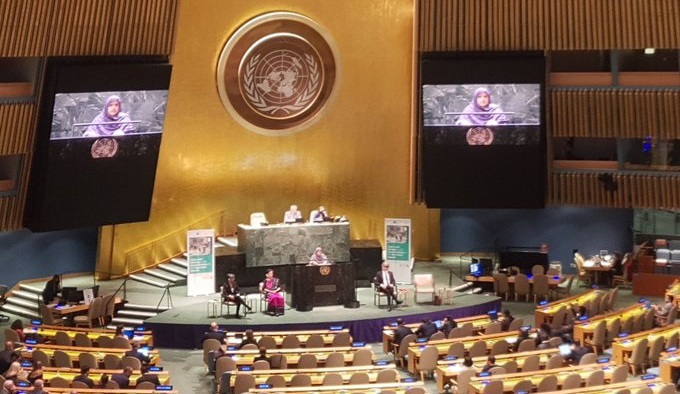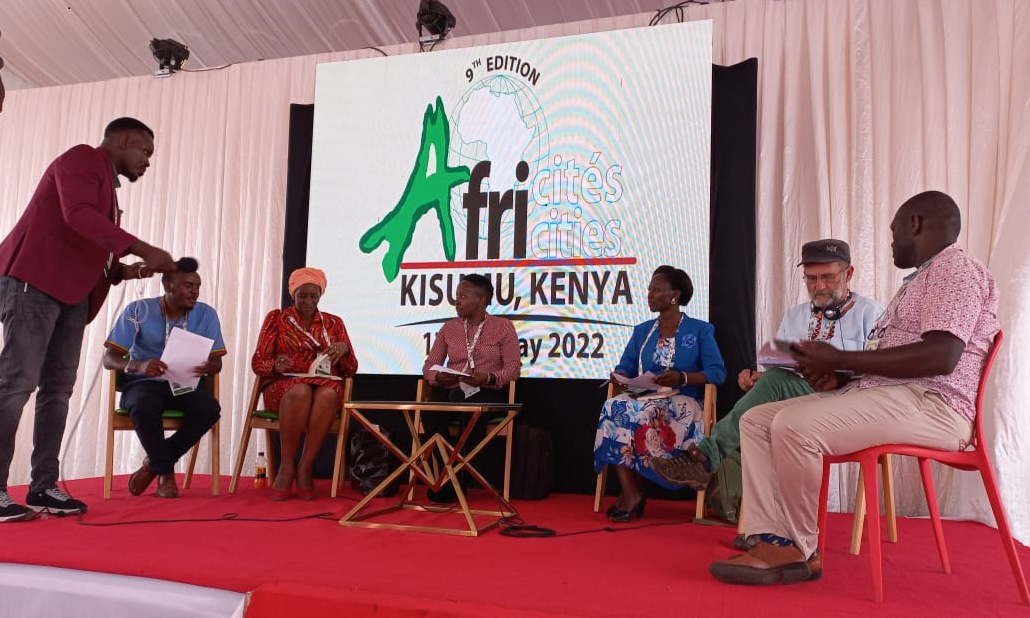 NEW YORK / GENEVA—The United
NEW YORK / GENEVA—The United
Nations Special Rapporteur on the right to housing, Leilani Farha, today has
challenged governments to go further and commit to bold action to end
homelessness and improve housing conditions on a global scale.
“I am convinced we can end the scourge of homelessness and improve living
conditions for over a billion people worldwide,” Ms. Farha told the UN General
Assembly during the presentation of her latest report, launching a yearlong
campaign to ensure that a human rights framework is included in all aspects of
the New Urban Agenda.
The expert’s call comes just weeks after states adopted the Sustainable
Development Goals (SDGs), which will frame agendas and policies for the next 15
years. The SDGs, which will replace and expand the Millennium Development
Goals, aim to end poverty by 2030 and universally promote shared economic
prosperity, social development and environmental protection.
“Human rights have been largely absent from discussions of urban development”,
Ms. Farha warned. “It was a noticeable trend in the creation of the SDGs that
is being repeated in the lead up to Habitat III – the UN Conference on Housing
and Sustainable Urban Development, scheduled for October 2016.”
The report describes how urban centres are facing a future where vast
inequalities are growing, segregating those who have resources from those who
do not. “On its current path, urbanization is simply unsustainable,” Ms Farha
stated.
“Major housing issues confronting cities such as the wild growth of informal
settlements, social exclusion and increasing homelessness will only be solved
if the right to adequate housing is properly understood and incorporated into
all aspects of urban development,” she said.
With the right to adequate housing as a pillar, the report notes, a human
rights framework can provide the coherence and consistency sorely needed in a
New Urban Agenda (Habitat III) to achieve sustainable, inclusive cities for all
– a goal of the SDGs.
“On the eve of the adoption of the SDGs and in the lead up to Habitat III, we
have an exceptional opportunity to change the way we think about cities, not
only as engines of development but also as places where human rights are
realized and celebrated,” the expert added.
“I am firmly committed to working closely with local and national Governments,
UN Agencies, civil society and private actors to ensure a strong human rights
outcome in Habitat III,” the Special Rapporteur concluded.
(*)Check the Special Rapporteur’s report
to the UN General Assembly (A/70/270): http://www.ohchr.org/EN/Issues/Housing/Pages/AnnualReports.aspx
ENDS
Ms.Leilani Farha(Canada) is the UN Special Rapporteur
on adequate housing as a component of the right to an adequate standard of
living, and on the right to non-discrimination in this context. She took her
function in June 2014. Ms. Farha is the Executive Director of the NGO Canada
without Poverty, based in Ottawa, Canada. A lawyer by training, for the past 20
years Ms. Farha has worked both internationally and domestically on the
implementation of the right to adequate housing for the most marginalized
groups and on the situation of people living in poverty. Learn more, log on to: http://www.ohchr.org/EN/Issues/Housing/Pages/HousingIndex.aspx
The Special Rapporteurs are part of what is known as the Special Procedures of
the Human Rights Council. Special Procedures, the largest body of independent
experts in the UN Human Rights system, is the general name of the Council’s
independent fact-finding and monitoring mechanisms that address either specific
country situations or thematic issues in all parts of the world. Special
Procedures’ experts work on a voluntary basis; they are not UN staff and do not
receive a salary for their work. They are independent from any government or
organization and serve in their individual capacity.
Photo:
Leilani Farha on Adequate Housing and Standard of Living, Third Committee, 23rd
Plenary – 70th General Assembly. Source: UN WEB TV.
For more information and media requests please contact:
In New
York:
André-Michel Essoungou, (+1 917 367 9995 / Cell: +1 917 940 0685 / essoungou@un.org)
Nenad Vasic (+1 212 963 5998 / Cell: +1 917 941 7558 / vasic@un.org)
Junko Tadaki (+41 79 444 5401/ jtadaki@ohchr.org)
In Geneva:
Juana Sotomayor (+41 22 917 9445 /jsotomayor@ohchr.org)
or write to srhousing@ohchr.org
Formedia inquiries related to other UN independent
experts:
Xabier Celaya, UN Human Rights – Media Unit (+ 41 22 917 9383 / xcelaya@ohchr.org)


